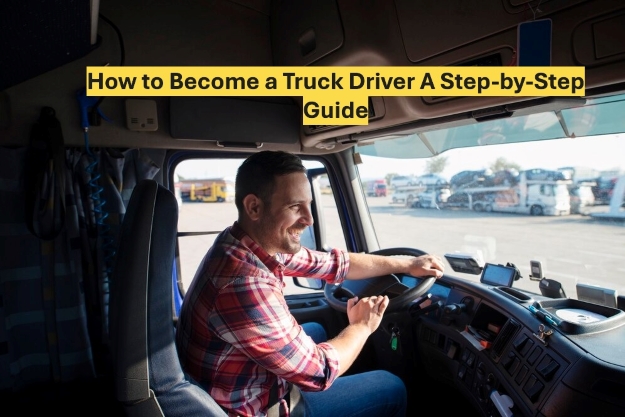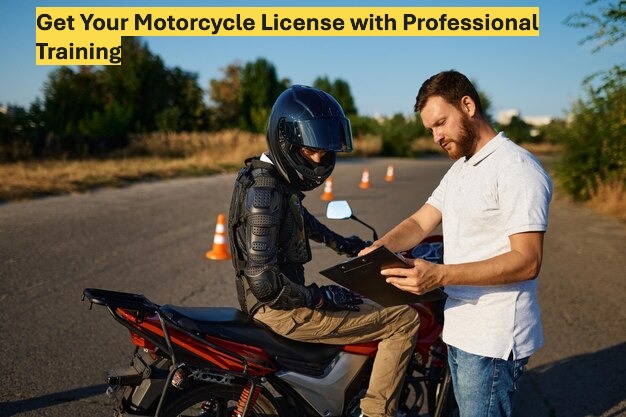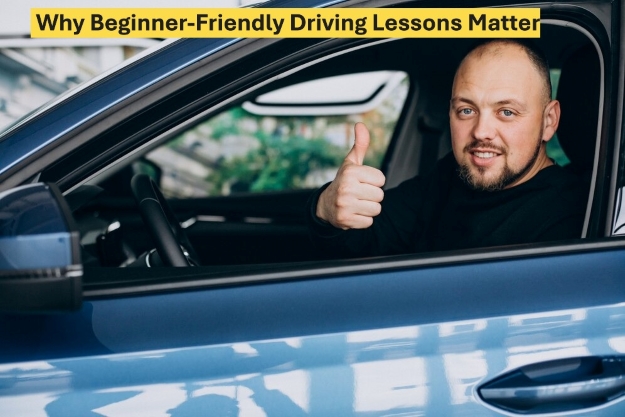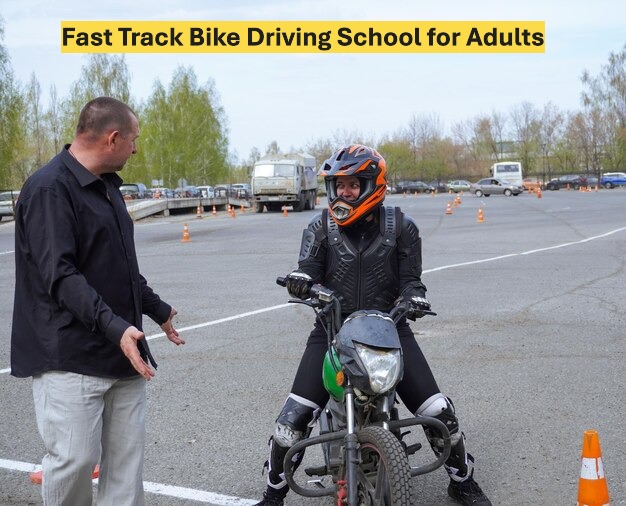Top Rated Motorcycle Courses for Safety
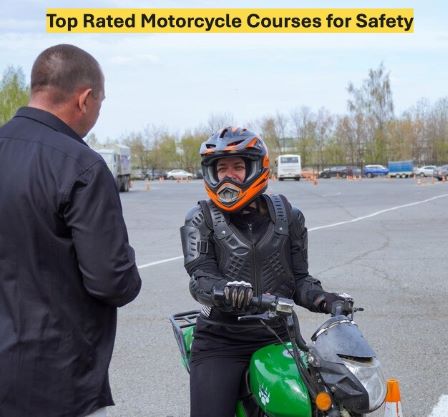
Motorcycling can be an exciting and liberating experience, but it comes with inherent risks. To ensure you ride safely and confidently, it’s essential to undergo proper training. Many motorcycle safety courses are available that cater to beginners and experienced riders. In this article, we will explore some of the top-rated motorcycle courses for safety, detailing what each course offers, who should take them, and the benefits of professional training.
Why Motorcycle Safety Training is Essential
Whether you’re a new rider or an experienced one, motorcycle safety training plays a crucial role in making sure you ride responsibly. Motorcycle accidents can result in severe injuries or even fatalities, but the good news is that many of these accidents can be prevented with proper training.
Taking a motorcycle safety course helps you improve your riding skills, learn defensive driving techniques, and understand how to handle emergencies. A motorcycle safety course for beginners is a great starting point, offering new riders the foundational skills they need to navigate the roads safely.
Additionally, advanced riders can benefit from safety courses that teach techniques for handling challenging weather conditions, high-speed maneuvers, and defensive strategies to avoid accidents.
Top Rated Motorcycle Safety Courses for New Riders
When you’re just starting, the proper training can set you up for a lifetime of safe riding. Below are some top-rated safety courses designed for beginners who want to learn the essential skills to ride safely.
1. Motorcycle Safety Foundation (MSF) Basic RiderCourse (BRC)
The Motorcycle Safety Foundation (MSF) Basic Rider Course (BRC) is one of the most recognized and widely available beginner motorcycle safety courses in the United States. This course is ideal for those with little to no riding experience.

What You’ll Learn:
- Essential motorcycle operation, including starting, stopping, and shifting gears.
- Safe turning techniques, manoeuvring, and parking.
- Defensive riding skills and emergency braking.
- The importance of wearing protective gear and understanding road hazards.
The BRC includes classroom instruction and practical riding exercises, offering a well-rounded experience. This course can help you obtain your motorcycle license in many states and ensure you’re ready for real-world riding situations.
The motorcycle rider training course is a high-competition keyword that targets new riders seeking a comprehensive safety course. This keyword can help improve your article’s SERP ranking by attracting users actively searching for motorcycle safety courses.
2. Basic RiderCourse 2 (BRC2)
For those with motorcycle experience, the MSF’s Basic RiderCourse 2 (BRC2) is the next step. It’s designed for riders who have completed an introductory course or have a year or more of riding experience.
What You’ll Learn:
- Advanced braking and cornering techniques.
- How to control a motorcycle at higher speeds.
- Improving your reaction time in emergencies.
- Better hazard recognition and avoidance.
The BRC2 is a great way to refine your skills and become more confident in handling your bike under various conditions. This course primarily benefits those looking to further their safety and riding proficiency.
3. Harley-Davidson Riding Academy
The Harley-Davidson Riding Academy offers a comprehensive training program that includes classroom instruction and practical riding experience for Harley-Davidson enthusiasts or those who want to learn to ride a cruiser-style bike. Their “Learn to Ride” course focuses on providing new riders with all the tools they need to start riding safely.
What You’ll Learn:
- Basic motorcycle operation.
- Handling techniques specific to Harley-Davidson motorcycles.
- Safety protocols and defensive riding tactics.
Harley-Davidson Riding Academy courses are available at select Harley-Davidson dealerships across the country. They are an excellent option for those who prefer hands-on training focusing on cruiser-style motorcycles.
Advanced Motorcycle Safety Courses for Experienced Riders
Even if you’ve been riding for years, an advanced motorcycle safety course can help you further hone your skills. These courses focus on more complex riding situations and techniques to make you a safer, more proficient rider.
4. Motorcycle Safety Foundation (MSF) Advanced RiderCourse (ARC)
The MSF Advanced RiderCourse (ARC) is a step from the Basic RiderCourse and BRC2. This course is for experienced riders who are comfortable with basic riding skills and want to improve their performance in high-risk situations.
What You’ll Learn:
- How to handle your bike in challenging weather conditions.
- High-speed cornering techniques.
- Advanced braking methods for emergencies.
- How to maintain a safe riding position in various traffic conditions.
The ARC also helps riders increase their confidence in riding situations that require more advanced skills, such as cornering at high speeds and emergency braking.
The advanced motorcycle safety course is an excellent low-competition keyword to target. It’s ideal for experienced riders seeking further training to refine their skills and stay safe.
5. California Superbike School
If you’re looking for a course that focuses on high-performance riding, the California Superbike School is a fantastic option. This course is designed for experienced riders who want to take their skills to the track or improve their road-riding performance in high-performance situations.
What You’ll Learn:
- Advanced cornering and braking techniques.
- How to read the road and anticipate hazards.
- Techniques for riding on the track at high speeds.
While the California Superbike School is more performance-oriented, the safety techniques learned in this course can be transferred to everyday riding, making it an excellent choice for experienced riders looking to take their skills to the next level.
6. Track Days and Performance Courses
Participating in track days or performance courses at racetracks is an excellent way for riders who want to challenge themselves further to learn advanced motorcycle handling in a controlled environment. These courses usually require riders to have significant experience and focus on advanced techniques for high-speed cornering, braking, and maneuvering.
Track days allow riders to practice safely while learning new skills to improve their riding ability.
“FAQs”
1. What is the best course for a beginner rider?
The Motorcycle Safety Foundation’s Basic RiderCourse (BRC) is one of the best courses for new riders. It offers a mix of classroom instruction and practical riding exercises to teach you the fundamentals of motorcycle operation and safety.
2. How long does it take to complete a motorcycle safety course?
Most beginner motorcycle courses last 2 to 3 days, while advanced courses like the MSF Advanced RiderCourse can take 1 to 2 days to complete. The length can vary depending on the provider and course level.
3. Do I need to own a motorcycle to take a motorcycle safety course?
Not many courses provide motorcycles for students to use during the training. If you’re taking a beginner course, the school will typically provide a bike suited to your skill level. However, if you own a bike and feel comfortable using it, you may be allowed to bring it.
4. How much does a motorcycle safety course cost?
A motorcycle safety course typically costs $150 to $500, depending on the course level and the provider. Many states offer discounts or incentives for completing accredited training programs.
Conclusion
Top-rated motorcycle courses for safety provide valuable training for both beginner and experienced riders. Whether you’re learning to ride for the first time or looking to improve your advanced riding techniques, these courses help you build the skills and confidence needed to stay safe on the road. By investing in motorcycle safety training, you’re preparing yourself to pass your skills test and ensuring that you become a safer, more responsible rider in the long run.
Choosing the right course will depend on your current skill level, but no matter which program you choose, the benefits of professional training are undeniable. Take advantage of these top-rated courses and improve your riding skills to enjoy the open road safely and confidently.
This article uses relevant keywords like motorcycle safety course for beginners and advanced motorcycle safety course, helping it rank better on SERPs.
